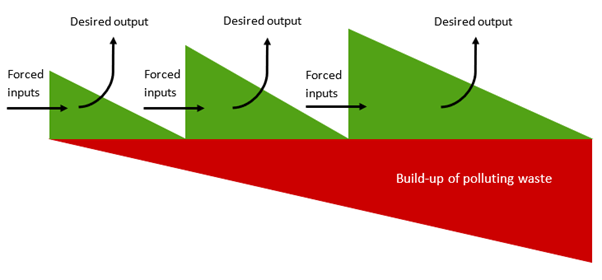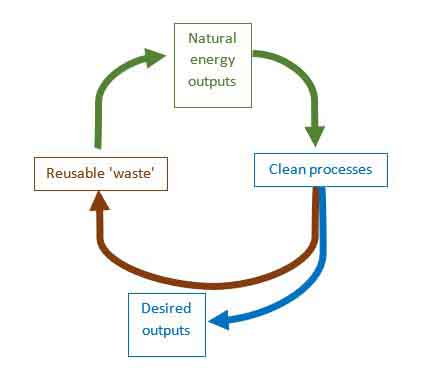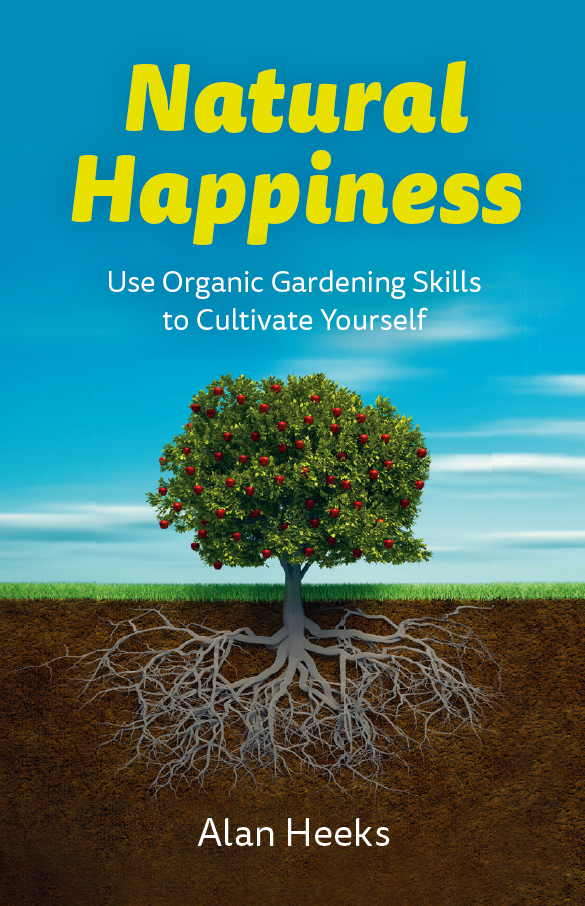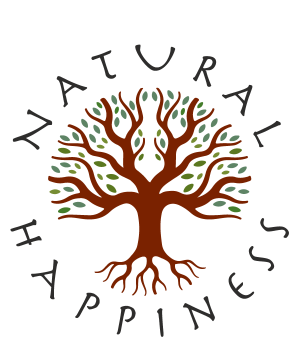Natural Happiness Seed 2: Natural Energy Sources
Do you find it’s getting harder to find the energy to get through the day? You’re not alone! Life and work really are getting more complex and demanding for most of us, so it’s no wonder if your energy feels depleted more often.
One reason why this topic is so important is that most people face far bigger demands on their personal energy than 10 or 20 years ago. Why is this? One reason is that the average UK person now spends eight hours on screens each day (smartphone, computers, TV). Research shows that screen time depletes our energy, and makes it hard to relax fully. Another reason is that social media, the climate crisis, and the sheer pace and complexity of life, all raise our stress levels and drain our energy. And most of us spend less time doing physical work or exercise which could be an antidote.
Natural or Forced Energy Sources?
To explain what natural energy sources mean for people, let’s consider the alternative. The differences between organic farming and what’s often called industrial or chemical farming can help us clarify the options for human nature.
Conventional farms depend on artificial fertiliser to drive outputs: in effect, plant growth comes mainly from the applied chemicals, not from the vitality of the earth. This promotes rapid but shallow-rooted growth. It pollutes the soil and reduces its fertility. And artificial fertilisers feed problems (weeds and pests) more vigorously than crops. This requires artificial herbicides and pesticides to suppress the problems, causing further pollution to the earth and groundwater. The net result is that the soil and the plants both lack resilience: they become increasingly vulnerable to bad weather, pests and disease. It’s a forced energy system, which requires progressively more stimulants and suppressants to make it work, as the diagram shows.

By contrast, organic farms and gardens focus on raising the fertility and resilience of their soil. This takes more effort and time than chemical farming. Compost and manure provide fertility, along with growing ‘renewal’ crops, also called green manure, like clover which put nitrogen back into the soil. Clever methods to avoid pests include crop rotation, and companion planting, where you use certain plants to attract predators which eat the pests. These approaches avoid the pollution of conventional pesticides.
Can you see the parallels for people? Many people push themselves along on stress, anxiety and caffeine. Social media is another short-term stimulant that depletes us. And many work organisations force outputs through tight deadlines, job insecurity and the gig economy, a culture of fear and competition, and total focus on results. It’s easy to get into a habit of suppressing your stress and worries with alcohol, comfort food, gaming and lots more. The consequences of all this are just like forced farming: people lose their natural resilience, become depleted, polluted, and even more dependent on artificial stimulants and suppressants.

Natural Energy for People
 My new book, Natural Happiness, has a whole chapter on what natural energy sources mean for people, and how to cultivate them. In this blog, I can only give a brief overview:
My new book, Natural Happiness, has a whole chapter on what natural energy sources mean for people, and how to cultivate them. In this blog, I can only give a brief overview:
- Four elements: for the land, these are earth, air, sunlight and water. For people, the equivalents are physical, inspirational, mental and emotional energy, and I offer ways to harness each of them.
- Personal Energy Audit: this self-guided process in the book enables you to assess your energy inflows and outflows, to see where your deficits are, and how you’re meeting them. Often people find their work is an energy drain, and they depend on friends and family to make up for it.
- Pruning and mulching: these are examples of gardening methods with useful equivalents in tending our human nature.
- Crop rotation: in organic gardens and farms, after you’ve grown an energy-demanding crop, you grow an energy-renewing one, or give the earth a fallow period. It’s a great approach for people too!
- Four seasons: many people focus on spring and summer qualities in their life, but we need to give time to the autumn season (harvesting), and the winter (rest and preparation).
The more you can feel that you are a natural organism, like the earth, the more you can use these gardening analogies to cultivate your own wellbeing.
Alan’s new book, Natural Happiness: Use Organic Gardening Skills to Cultivate Yourself, is now available: see more here.
